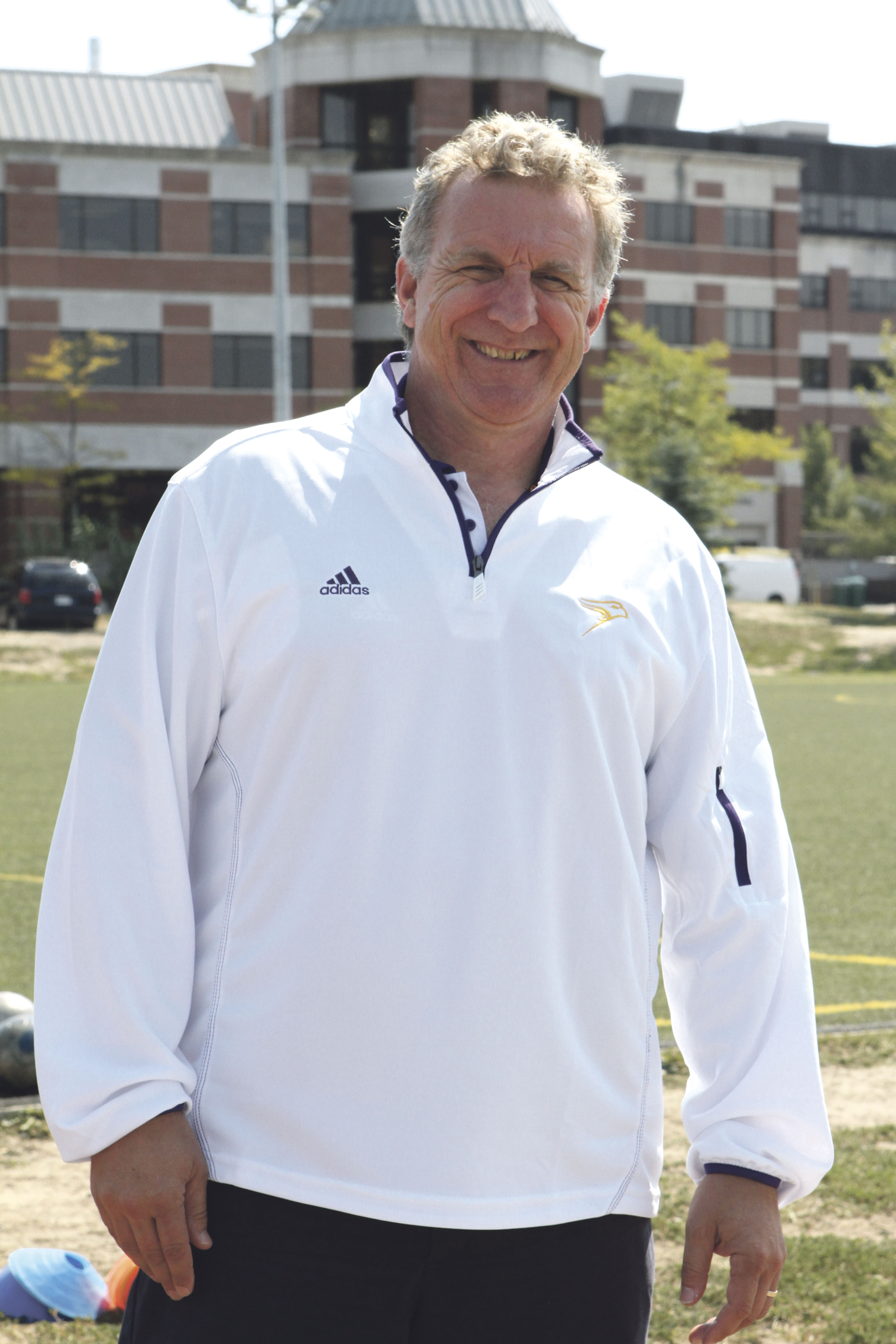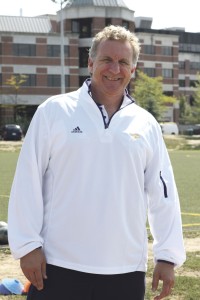Growing sport at WLU


In its 100 years as an institution, Wilfrid Laurier University – and its predecessors – has won 62 athletic championships. 31 of them have come since Peter Baxter took over as athletic director in 1998. But don’t call him a good luck charm.
“I don’t think it’s luck” said Baxter. “It’s all about making sure that everyone is committed to a cause. My job is to make sure that we’ve got the right people on the bus. The right people that are committed to our mission.”
“Essentially my greatest skill is to hire people a lot smarter than me,” he added with a laugh.
When Baxter first arrived at Laurier, coming over from the University of Toronto’s Mississauga campus, everything at WLU was on a much smaller scale. With just over 5,800 students on campus, the Wilfrid Laurier University of 1998 didn’t have much of a sports program beyond its storied football team.
“The facilities were tired, they’d been around for about 35 years and they weren’t reflective of the student population,” said Baxter. “At that point 65 per cent of the campus was female and we only had four washroom stalls for women in the whole Athletic Complex.”
So with a commitment from then-president Bob Rosehart and current VP: student affairs David McMurray – who was dean of students at that time – Baxter went to work looking to create a more well-rounded athletics program. The first step: bringing in much-needed funds.
“It was pretty simple, we needed more money,” he said. “One of my mandates was to generate revenue. We’ve gone from just over $200,000 total to about $1.5 million [in revenue].”
As a result, the varsity teams began producing those 31 championships that have taken place during Baxter’s time as athletics director, and the university’s intramural and fitness programs began to grow. According to Baxter, when he first arrived, there were about 100 intramural teams. Today, there are over 700. As he begins his 15th year at WLU, Baxter has no shortage of great memories. The stellar 2005 year that saw both a Vanier Cup win and a women’s hockey national championship, incredible streaks of six provincial championships for the women’s lacrosse team, and seven for the women’s hockey team, or the Golden Hawks’ more recent dominance in curling.
Baxter has even seen both his son and daughter come to Laurier, with his daughter Haley playing her rookie season for the women’s hockey team last year. But with all the good memories, there has been some pain. Most recently in the summer of 2011, when the athletics department made the unpopular decision to cut the men’s and women’s volleyball teams.
“That was definitely tough,” said Baxter. “No one wants to take away something that those 40 athletes really loved. But that was a situation where for them to really be competitive and have the full-on top student experience, we needed to invest more, and we didn’t have the money to do that.”
However, Baxter may have had his toughest times at Laurier in the fall of 2003. First, the department parted ways with women’s hockey coach Bill Bowker – which resulted in Baxter coaching the team for three months. Then in November, football players Jeff Melis and Stephen Ryan McGuffin were arrested in connection with the beating of a University of Waterloo student that left him in a coma.
Just weeks later, drug tests taken after the Yates Cup revealed that star running back Derek Medler was using cocaine, which revealed a host of other crimes including forcible confinement and accessory to the shooting of a Kitchener man, and possession of a prohibited firearm.
“We had all that within one semester. There was certainly a time where you thought to yourself, ‘how are we going to get out of this hole?’” said Baxter. “That kind of thing affects the reputation of the university. It’s no longer just the football program, it’s Laurier.”
According to Baxter, overcoming that adversity played a large role in the Hawks’ Vanier Cup win in 2005. “They took responsibility and came back with the ‘one team’ philosophy,” he said. And it is that kind of growth that Baxter says is the most rewarding part of his job.
“Graduation day is my payday,” he said. “Nevermind what they’ve accomplished on the field, our athletes have grown and they’ve taken away significant life lessons.”



